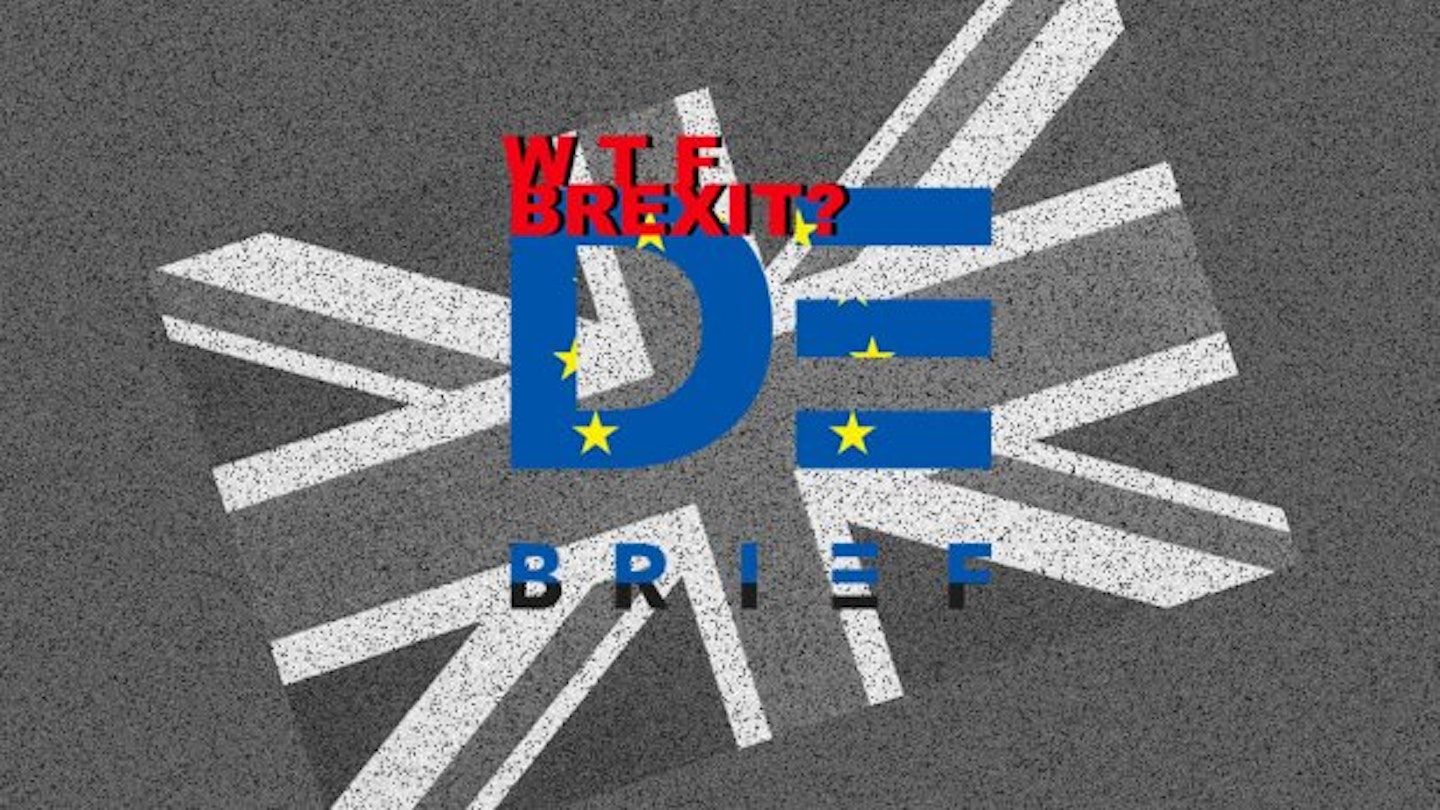When is news not news? Yesterday, the government’s Brexit Secretary, David Davis, confirmed that parliament will be given a vote on the final Brexit deal. This sounds good but is it actually any good? Will it actually make any difference to the outcome of Brexit?
To answer that, we have to scroll back a bit to when the former attorney general, Dominic Grieve, tabled an amendment which called for MPs to have what he called ‘a meaningful vote’ on Brexit’.
**WATCH NOW: The Debrief Talks To Nick Clegg About Brexit **
Davis’s announcement that there will be a vote is undoubtedly an attempt to quell discontent in his own party. ‘It is clear that we need to take further steps to provide clarity and certainty both in the negotiations and at home regarding the implementation of any agreement into United Kingdom law’, he told the House of Commons, as he outlined the legislation which would take us out of the European Union in the form of an Act of Parliament. ‘This agreement will only hold if parliament approves it’, he added.
This means that parliament will have a vote on the final agreement which will cover everything from citizens’ rights to the financial settlement we make with the EU but, crucially, not trade deals. Davis also made it clear that the vote could not, under any circumstances, undo or do away with Brexit. It is only a vote on the contents of the deal.
So, is this a ‘meaningful’ vote or an empty gesture? Jill Rutter, Programme Director of the Institute for Government told The Debrief she ‘welcomes David Davis’ promise of new primary legislation to implement the withdrawal agreement’ and says this is ‘the best way to give citizens’ rights a degree of entrenchment in law’. Rutter added 'another area of debate is whether parliament can do anything if they don't like the deal or, indeed, if there is no deal at all. The big problem in all of this is that the default under Article 50 is that we leave the EU at 11pm on the 29th March 2019 no matter what.'
What would a meaningful vote look like? 'What parliament means by a "meaningful" vote' Rutter says 'is a vote that can change the outcome'. She went on to say ‘but a promise of legislation alone is not enough to answer the many outstanding questions on the legal status of any deal’. So, as usual, there you have it: Brexit means Brexit and nobody really knows what that means. This could be not so much a ‘meaningful’ vote as an inconsequential one.
Remember's Theresa May's initial arguments about not having to consult parliament at all? The ones which ended her up in court courtesy of Gina Miller? Well that's how this all started. Perhaps the most unbelievable part of it all is that the final authority on Article 50 of the Lisbon Treaty is not, in fact, our Parliament but the Crown. This is known as ‘Crown prerogative’. It means that the executive power to conduct foreign affairs, which includes the signing of treaties, has always sat with the Crown. This goes way back and is rooted in our constitution which is not really a constitution so to speak of because, technically, Britain doesn’t have a constitution. Still with us? In a nutshell, we’re now bound by Article 50 which our MPs voted through without changing the ‘Crown prerogative’ aspect of it, before voting in favour of Article 50 they could have asked for a 'meaningful vote' to be put on the table.
So, where does all of this leave us? Parliament will get its vote on the final deal but so, too, will the European Parliament so we’re still a long way off from everyone agreeing and there is the one that could actually be meaningful because the European Parliament has the right to withhold its consent on the final agreement. Simply, neither the European Parliament nor any member state within it who has a chance to vote on that agreement is obliged to approve the final deal. Nobody seems to know what would happen then… Rutter says 'if it's just a deal under Article 50 then it doesn't have to go through ratification by national parliaments [of EU member states] but, if it's a deal that goes beyond exclusive EU competence - that's things like trade agreements - then we will need to allow a lot more time meaning there's more potential for people to say "hold on, we don't like this".'
As you were guys.
Like this? You might also be interested in:
Lessons In Friendship At Wor From Boris Johnson And Michael Gove
Follow Vicky on Twitter @Victoria_Spratt
This article originally appeared on The Debrief.
